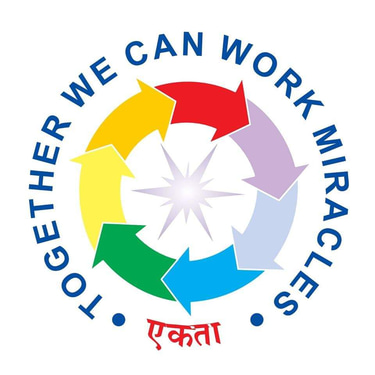The Importance of Mother's Breastfeeding
7/12/20245 min read


Breastfeeding is one of the most natural, yet most powerful actions a mother can take to ensure her child's health and well-being. In India, where cultural beliefs and healthcare practices vary widely across regions and communities, the importance of breastfeeding is sometimes overlooked, despite its immense benefits. For new mothers, especially in urban areas, there are several misconceptions about breastfeeding, particularly after a cesarean section (C-section). It is essential to break these myths and emphasize the critical role that breastfeeding plays in the early stages of a child's life, especially in reducing infant mortality rates.
Dispelling Myths: Breastfeeding After a C-Section
One of the most common misconceptions, especially in urban India, is that mothers who have had a cesarean delivery should not breastfeed their babies immediately. This belief stems from the idea that C-sections involve a longer recovery process and that breastfeeding may not be possible or even advisable due to the physical strain. However, this is far from the truth. In fact, breastfeeding after a C-section is not only possible but also highly recommended.
Studies have shown that breastfeeding has numerous benefits for both the mother and the baby, regardless of the delivery method. After a C-section, mothers can begin breastfeeding as soon as they feel comfortable. The immediate skin-to-skin contact after birth is crucial in stimulating the mother’s body to release the right hormones, which helps in milk production and establishes a strong emotional bond between mother and baby. Early breastfeeding also helps in preventing complications like post-surgical infections and can reduce the risk of postpartum depression by promoting hormonal balance.
Skin-to-Skin Contact: Essential for Bonding and Hormonal Stimulation
The first hour after birth is a golden window for both the baby and the mother. Skin-to-skin contact—placing the newborn directly on the mother’s chest—immediately after birth is vital for establishing a connection. This contact helps regulate the baby’s body temperature, stabilizes their heart rate and blood sugar levels, and stimulates the brain’s release of oxytocin, often referred to as the “love hormone.” Oxytocin not only promotes bonding but also triggers the release of prolactin, a hormone that encourages the production of breast milk.
For mothers, this early bonding is key to their emotional well-being, and for babies, it is a source of comfort, security, and nourishment. The body-to-body contact after birth, especially in India, where many babies are born in medical settings with strict hospital protocols, is an essential practice that should not be overlooked. It is during this critical period that a mother’s milk production can be established successfully, ensuring the baby’s nutritional needs are met from the very beginning.
The Importance of Colostrum: The First Milk That Saves Lives
One of the most vital aspects of breastfeeding that is often overlooked in some areas of India is colostrum—the thick, yellowish milk produced by the mother in the first few days after childbirth. Unfortunately, some new mothers, especially in rural areas, may not understand the value of colostrum and may even discard it. This is a significant mistake, as colostrum is packed with essential nutrients and antibodies that provide the newborn with critical protection in the first few days of life.
Colostrum contains high levels of proteins, antibodies (immunoglobulins), and white blood cells, which help build the baby’s immune system and protect them from infections. It also contains important vitamins and minerals, such as vitamin A, zinc, and potassium, which are essential for the baby’s development and overall health. By discarding colostrum, mothers miss out on providing their babies with nature’s first medicine. In India, where infections like pneumonia, diarrhea, and malnutrition are leading causes of infant mortality, colostrum plays a crucial role in safeguarding newborns against these health threats.
Breastfeeding and Infant Mortality: A Life-Saving Practice
India faces a significant challenge in terms of infant mortality, despite the progress made in recent decades. According to the World Bank, India has an infant mortality rate (IMR) of 30.7 deaths per 1,000 live births, which is still high compared to many developed nations. A substantial proportion of infant deaths in India can be attributed to preventable conditions such as infections, malnutrition, and inadequate access to proper healthcare. However, one simple intervention—breastfeeding—has been shown to significantly reduce these risks.
The World Health Organization (WHO) and UNICEF recommend exclusive breastfeeding for the first six months of life. Studies have shown that infants who are breastfed exclusively during this period are less likely to suffer from respiratory and gastrointestinal infections, and they have lower risks of developing conditions like malnutrition and undernutrition. In fact, exclusive breastfeeding in the first six months can reduce the risk of infant mortality by up to 22%.
Research in India has found that babies who are breastfed within the first hour of birth have a significantly lower risk of neonatal mortality. A study published in The Lancet showed that early initiation of breastfeeding (within the first hour) leads to a 19% reduction in neonatal mortality. This highlights how something as simple as breastfeeding can be the difference between life and death for thousands of infants in India.
The Long-Term Benefits of Early Breastfeeding
Not only does breastfeeding reduce the risk of infant mortality, but it also has long-term health benefits. Studies have found that babies who are breastfed for longer durations have higher IQs, better cognitive development, and lower risks of chronic diseases like obesity, diabetes, and hypertension later in life. The benefits of early breastfeeding don’t stop after the first few months; they continue to have positive effects throughout a child’s life.
One of the most compelling reasons to begin breastfeeding early is that it encourages longer durations of breastfeeding overall. Studies have shown that babies who start breastfeeding within the first hour of birth are more likely to be exclusively breastfed for the recommended six months and beyond. A study conducted in India found that mothers who initiated breastfeeding early were three times more likely to breastfeed their infants exclusively for the first six months compared to those who delayed breastfeeding.
This is especially important in India, where breastfeeding practices vary significantly. In urban areas, mothers often face challenges in balancing work and childcare, which can interfere with the duration of breastfeeding. Early initiation of breastfeeding, especially in the first hour after birth, has been linked to longer periods of breastfeeding, even in the face of these challenges.
Conclusion
Breastfeeding is a simple, yet incredibly powerful practice that has life-long benefits for both the mother and the baby. In India, where infant mortality rates remain high and access to healthcare is often limited, breastfeeding offers a low-cost, effective solution to protect infants from malnutrition, infections, and early death. Dispelling myths surrounding breastfeeding, particularly the misconception that mothers should not breastfeed after a C-section, and promoting skin-to-skin contact, are essential steps toward improving the health of Indian mothers and babies.
The value of colostrum, the first milk, should not be underestimated, as it is packed with antibodies and nutrients that protect newborns from infections. Early breastfeeding (within the first hour) is not only critical for the baby's health but also sets the stage for longer-term breastfeeding. This simple act can be the difference between life and death for thousands of children in India. By embracing the practice of breastfeeding and advocating for early initiation, India can significantly reduce infant mortality and pave the way for healthier, stronger generations.
EKTA INSTITUE OF CHILD HEALTH
Shankar Nagar Road,
Near Ram Mandir, New Shanti Nagar,
Raipur, Chhattisgarh - 492001
Ekta Institute of Child Health – a unit of Sparkle Hospital Pvt Ltd
